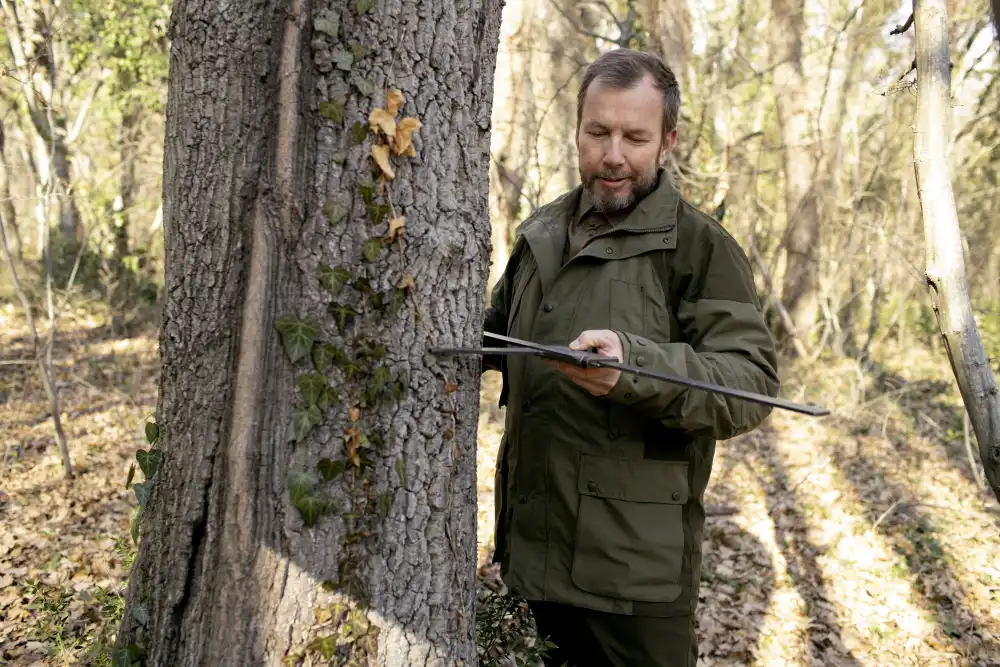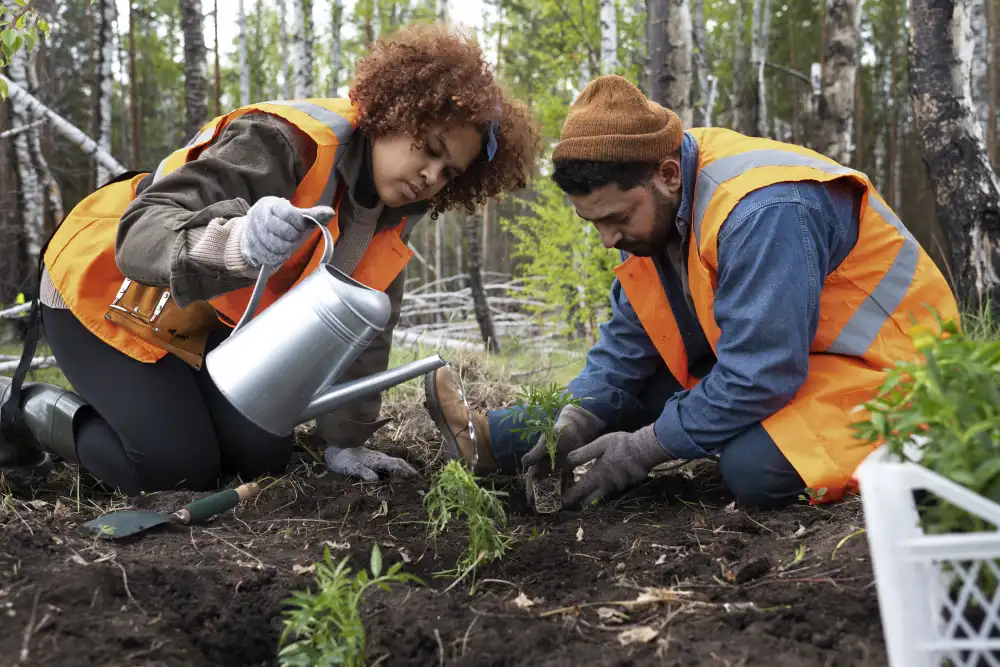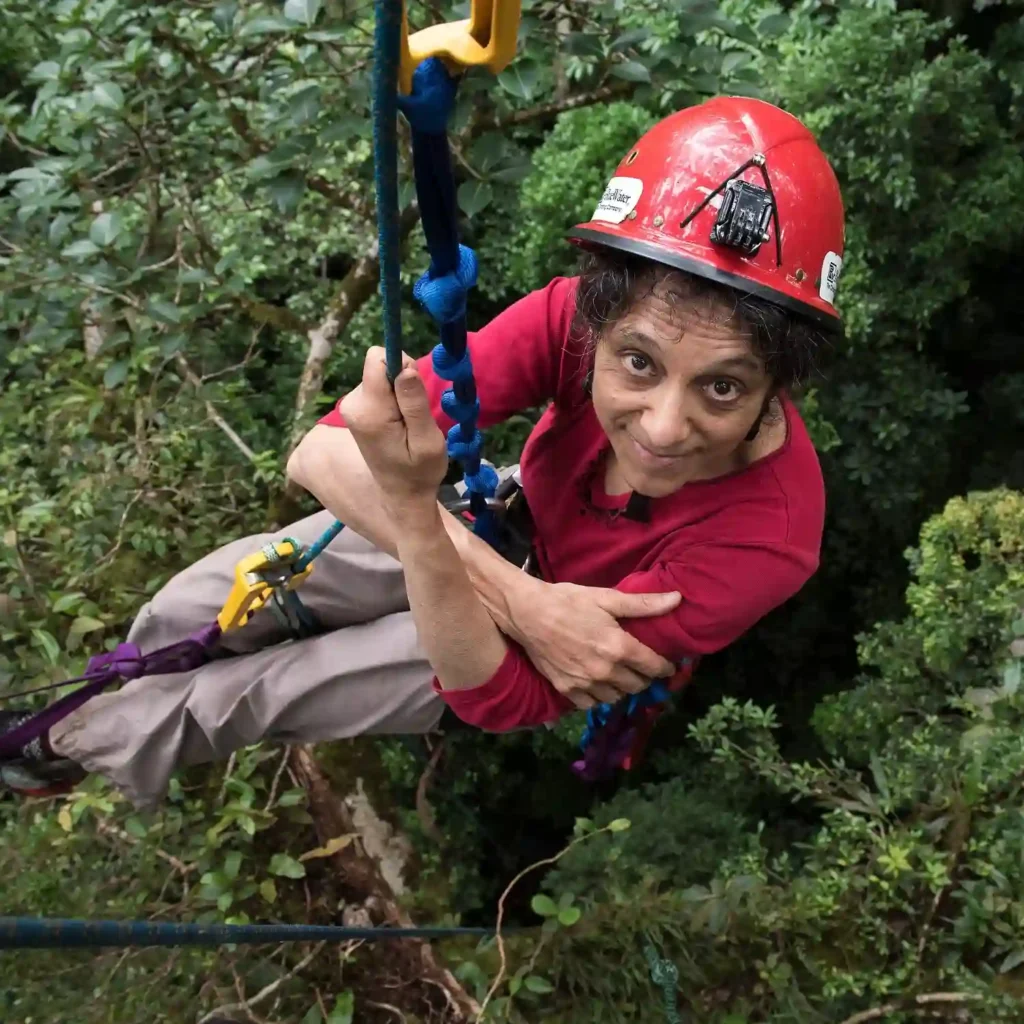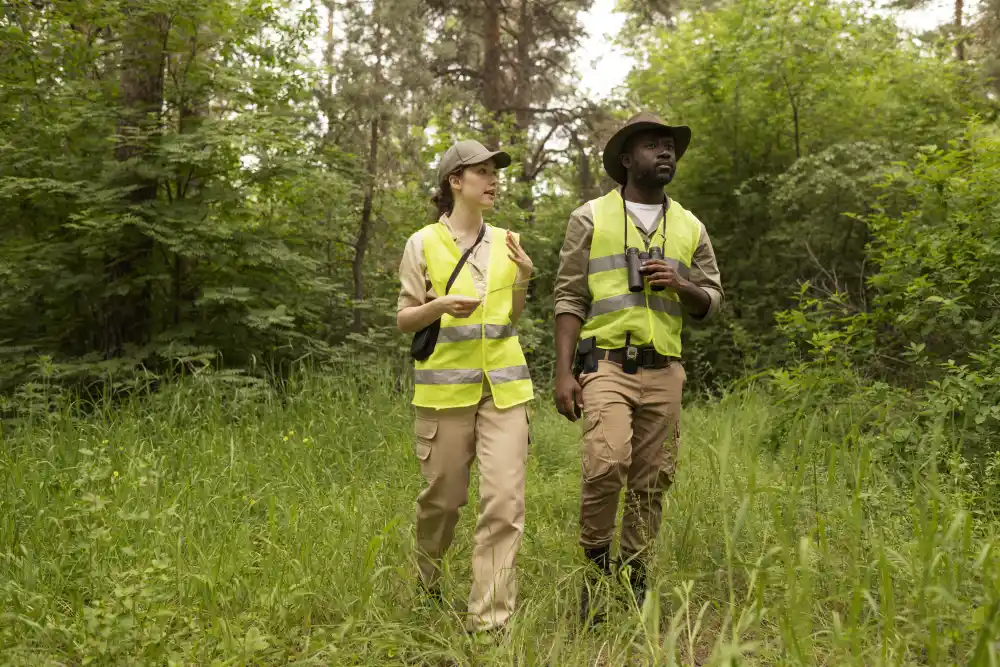Forestry Technician

Forestry Technician
Job Sector
Agriculture, Food and Natural Resources
Potential Salary (USD)
Low End: $28,000.00 /yr
Avg/Med: $50,000.00 /yr
High End: $75,000.00 /yr
Education Required
- Associate of Science in Forestry, or
- Diploma of Forestry, or Forest Technology
Job Outlook
Forestry Technicians are in demand as the need for sustainable forest management and conservation continues to grow, especially in the face of climate change and deforestation challenges.
Career Profile Overview
A Forestry Technician plays a vital role in managing and conserving forests, ensuring their health and sustainability. Working closely with foresters and conservation scientists, Forestry Technicians assist in monitoring forest conditions, managing resources, and implementing conservation practices. They work in diverse environments, from dense woodlands to urban forests, helping maintain ecological balance and supporting the sustainable use of forest resources.



Key Responsibilities
Forest Management
- Assist in planning and executing forest management activities, such as planting, thinning, and controlled burns, to promote forest health and productivity.
Wildlife Habitat Maintenance
- Monitor and manage habitats within forests to support wildlife conservation efforts, ensuring the protection of endangered species and biodiversity.
Data Collection
- Gather data on tree species, forest conditions, soil quality, and wildlife populations through field surveys, measurements, and observations.
Fire Prevention and Control
- Participate in fire prevention activities, including clearing brush and creating firebreaks, and assist in wildfire suppression efforts when necessary.
Timber Harvesting
- Assist in marking trees for harvesting, monitoring logging activities, and ensuring that timber operations comply with environmental regulations and sustainable practices.
Recreation Management
- Help manage recreational areas within forests, including maintaining trails, campsites, and facilities, and ensuring public safety.
Environmental Education
- Educate the public, landowners, and stakeholders about forest conservation, sustainable practices, and the importance of protecting natural resources.
Educational Path
High School
- Basic understanding of science, biology, mathematics, and geography is important for this role.
Postsecondary
- Associate’s Degree in Forestry or Natural Resources
Advanced Degrees
- Master’s or Ph.D. in Remote Sensing, Geospatial Science, or a Related Field
Certifications
- Certified Forestry Technician designation
- GIS Certification
Entry-Level
Forestry Aid
- Performs basic manual labor tasks in forests, such as tree planting, trail maintenance, and assisting with timber stand improvement activities.
Natural Resource Technician
- Collects data on various natural resources, including forests, water, and wildlife, and assists in resource management activities.
Forest Conservation Worker
- Engages in hands-on tasks aimed at protecting and restoring forest ecosystems, such as invasive species removal and erosion control.
Mid-Level
Forestry Technician
- Conducts forest inventories, marks timber for harvest, assists in forest management planning, and monitors forest health.
Wildlife Technician
- Gathers data on wildlife populations, habitats, and assists in the implementation of wildlife management and conservation strategies within forest environments.
Fire Suppression Technician
- Participates in wildfire prevention, detection, and suppression efforts, operating equipment and implementing fire control tactics.
Senior-Level
Senior Forestry Technician
- Oversees complex forestry operations, trains and supervises junior technicians, and contributes to the development and implementation of detailed forest management plans.
Forest Ranger
- Enforces forest regulations, provides public education, manages recreational areas, and responds to emergencies within a designated forest region.
Forest Inventory Specialist
- Leads efforts in conducting detailed forest inventories, utilizing advanced technologies (e.g., GIS, remote sensing) to assess timber volume, growth, and health.
Skills and Qualities
Outdoorsy
- Ability to work outdoors in various weather conditions, often in remote and rugged terrain, and perform physically demanding tasks such as hiking, tree climbing, and carrying equipment.
Data Analysis
- Capable of analyzing data collected from the field to assess forest conditions, detect potential issues, and recommend management practices.
Forestry Systems
- Familiarity with forestry tools, equipment, and technology, including Geographic Information Systems (GIS) and Global Positioning Systems (GPS) for mapping and data collection.
Attention to Detail
- Precise in collecting and recording data, ensuring accuracy in measurements and observations that are critical for effective forest management.
Communication
- Ability to communicate findings, plans, and recommendations clearly to foresters, conservationists, and the public.
Problem Solving
- Resourceful in addressing challenges in the field, such as navigating difficult terrain, responding to emergencies, and adapting to changing environmental conditions.
United States
Oregon State University | Oregon
- Program: Associate of Science in Forestry
- Website: OSU Forestry
Pennsylvania College of Technology | Pennsylvania
- Program: Associate of Applied Science in Forest Technology
- Website: PCT Forestry
Haywood Community College | North Carolina
- Program: Associate in Applied Science in Forest Management Technology
- Website: HCC Forestry
Canada
Fleming College | Ontario
- Program: Forest Technician Diploma
- Website: Fleming College Forestry
British Columbia Institute of Technology | British Columbia
- Program: Forest and Natural Areas Management Diploma
- Website: BCIT Forestry
Maritime College of Forest Technology | New Brunswick
- Program: Forest Technology Diploma
- Website: MCFT
Nalini Nadkarni


Position
Ecologist, Professor at the University of Utah, Forest Canopy Researcher
Contributions
Dr. Nalini Nadkarni is a forest ecologist known for her pioneering work in the study of forest canopies. Her research has provided valuable insights into the biodiversity and ecological processes of treetop ecosystems. She is also a strong advocate for public engagement in conservation and environmental education.
Impact
Nadkarni’s research has advanced our understanding of forest ecosystems, particularly the unique habitats found in forest canopies. Her outreach efforts have inspired greater public interest in forest conservation and environmental stewardship.
Source



Resources and Further Reading
- Government of Canada: Forestry, The Canadian Forest Service
- Society of American Foresters: SAF ForestEd
